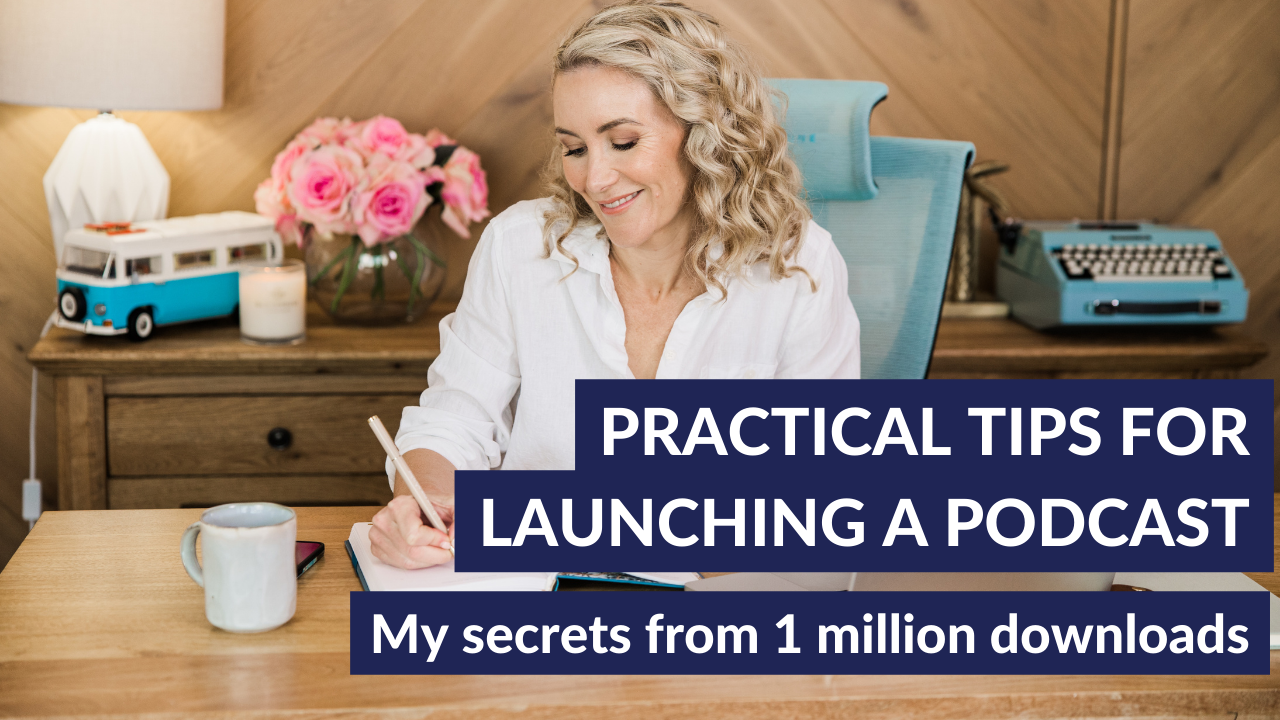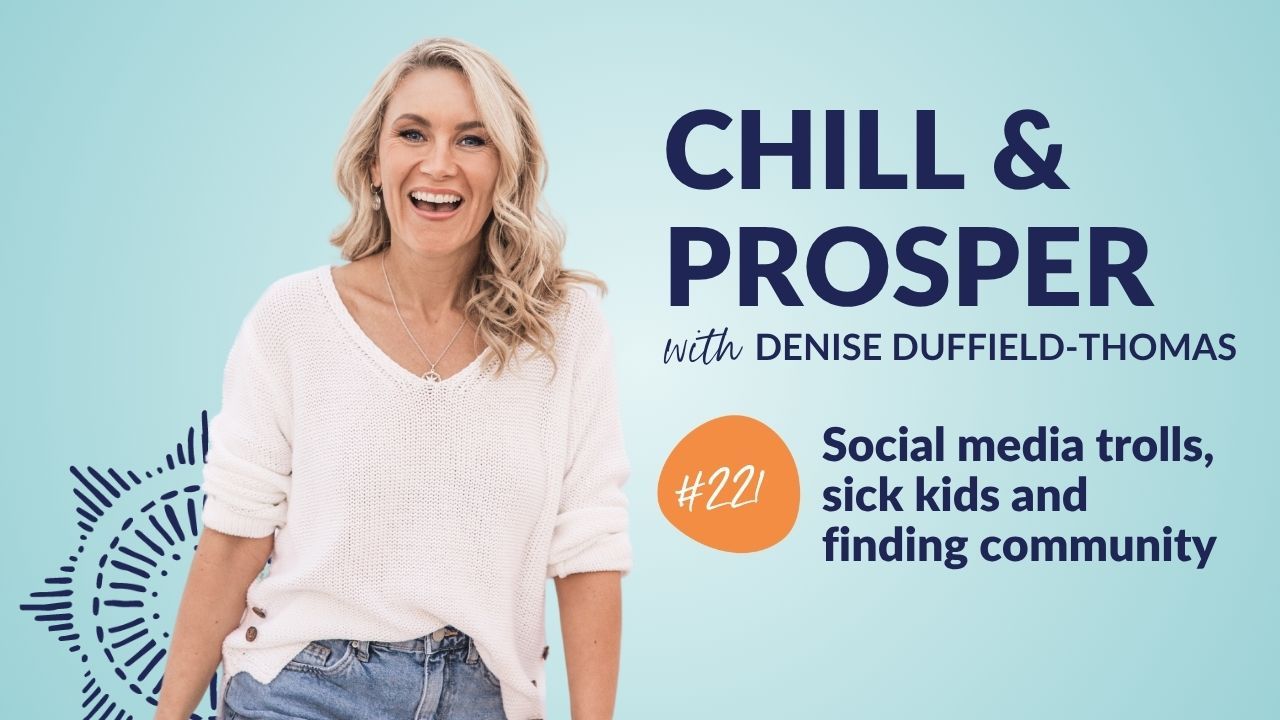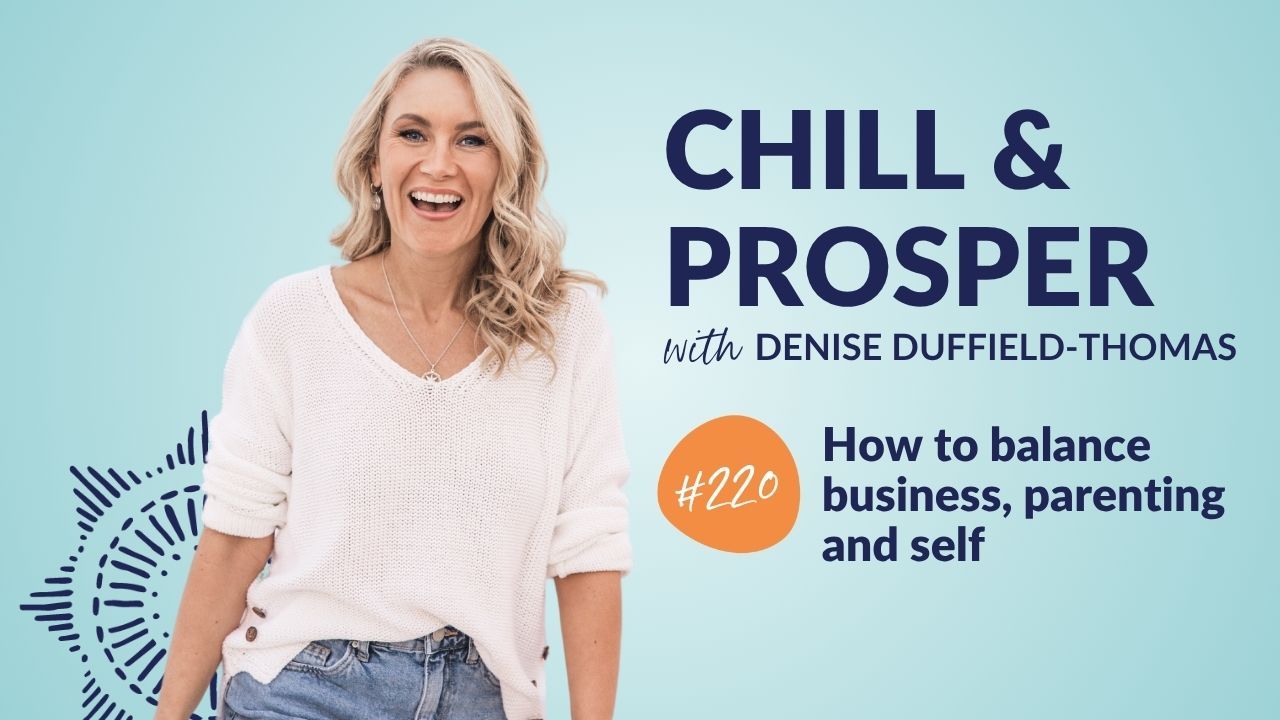Practical tips for launching a podcast. My secrets from 1 million downloads

After reaching 100 episodes of Chill & Prosper and over a million downloads, I'm taking you behind the scenes of my podcasting journey to reveal my secrets.
So many entrepreneurs have told me they feel intimidated by the demands of launching a podcast. 🙋♀️
Unsure you can keep up with the constant demands to create content?
Overwhelmed by the tech and how to keep it simple and low-cost?
Or don't know if a podcast would help your business?
And so many people have beliefs about imposter syndrome and not being smart enough, ready, or cool sounding enough to do podcasts.
If you've been feeling this, this article is for you.
I've been on hundreds of other people's podcasts but procrastinated launching my own for so long.
I've faced the same struggles as many aspiring entrepreneurs: lack of consistency, ideas, and tech problems.
But I've got some simple tips for overcoming these obstacles and creating successful content consistently.
You can listen to my podcast episode on this topic - Lessons from 100 episodes here:
Here are my tips for launching a podcast and creating new content:
1. Decide if podcasting is the right content creation method for you.
Deciding if podcasting is the correct content creation method for you depends on a few things, such as how much time you have available and what type of content you want to create.
Podcasting is a great way to reach a large audience with long-form content, as it is convenient for listeners to access your content on the go. It also allows you to reach a broader, global audience. However, podcasting can be time-consuming, as you will need to research and prepare topics, record and edit episodes, and promote the podcast.
And you'll need some key things to create a professional-sounding podcast. For example, you may need a dedicated recording space, a high-quality microphone and other audio equipment, editing software, or an editing service to produce episodes and transcribe the audio.
If you have the resources and the time available to commit to podcasting, it can be a great way to engage with your audience, as listeners can interact with you through comments and reviews.
Consider if talking, whether off-the-cuff or following a script, is your best form of content creation - perhaps you're more suited to writing or being on YouTube or TikTok videos.
"Do what works for you. Do what's easy for you. Make do with what resources you have now, and just do it."
If you find that podcasting is the right content creation method for you, it is crucial to be consistent with production and promotion, as this will help to grow your audience and keep them engaged.
"If you wait until you feel like it, you wait until you're feeling like you have something to say or you're feeling really positive and extroverted, then it can be hard sometimes to get that consistency."
2. Set a consistent schedule for podcasting.
My top tip for staying consistent with your podcast (and any content creation) is batching.
I book a studio for a whole day, sometimes two, and batch 10-20 episodes at a time.
This means I only need to think about podcast topics and recording a few times a year. Once recorded, my team handles the transcribing, posting, emailing, and promoting.
I would hate the weekly pressure of creating a podcast episode - I would procrastinate, leave it to the last minute and ultimately stop.
By batching, I get a few months of podcasts in the can and can then forget about it.
Batching also means you'll have multiple episodes ready and can focus on creating content for future episodes when you have the bandwidth.
It's also important to consider the length of your podcast and the format. Most people preferred my podcast episodes to be around 25-30 minutes and decided to stick with that format.
I usually do two 10-15 minute content sections divided by some testimonials from my clients.
When you're recording, it's helpful to have a timer to track how long you've been talking and take regular breaks.
3. Choose a topic for each episode
When choosing a topic, it is essential to consider what type of content you would like to produce and how often you plan to record.
If you plan to do interviews, consider who you will have on your podcast and how to coordinate the time zones.
If you are recording solo, you can consider topics you have already written about or use questions from your audience.
"Always have some content for people to know, like, and trust you."
Look back at your archives for topics that may be relevant to your current audience.
Additionally, consider what type of content your audience would be most interested in hearing and create topics around that - you can ask for topic ideas.
Lastly, it's important to consider the length of your episode. For example, do you want to cover one topic per episode? More topics in shorter episodes or fewer topics in longer episodes?
Keep an ongoing Google doc of topic ideas and suggestions ready for your next recording day.
Once you have chosen a topic, you can develop a script or bullet points to guide the conversation.
4. Recording your podcast.
Depending on the resources you have available and your podcast's goals, you can use a few different recording methods.
For example, you can record your podcast with a microphone and headphones or record it as a video and use the audio. You can hire a studio or find a quiet place at home and invest in a good microphone.
Make sure you have a comfortable seat, the temperature is correct, and you have props you might need to make recording more comfortable, like throat spray and lozenges.
Also, consider what ads or testimonials you need to record or ask your audience for. For example, I chose not to have paid ads in my podcast, and instead, I use the "ad space" to promote my own courses and books.
I ask my members to submit audio testimonials via SpeakPipe.com to be inserted into each episode by my podcast editor. Plus, I occasionally record ads to promote specific launches or events I'm involved with.
"It is hard to have that consistency. It is hard to get over the tech problems. It is hard to come up with new things to talk about all the time. But you can do it"
If podcasting is not for you, that's okay. You really don't have to do everything.
Nobody can stop you. But nobody can make you either. So you're allowed to do this even if you're not ready.
Go forth and do it and get some episodes under your belt!
Is a podcast in your future? What aha's can you take from my podcast strategy about your content creation process?
xx Denise
FREE MONEY MINDSET TRAINING
The 7 Most Common Money Blocks and How to
Clear Them
Discover which blocks are keeping you under-charging, over-delivering and from earning what you're worth!




